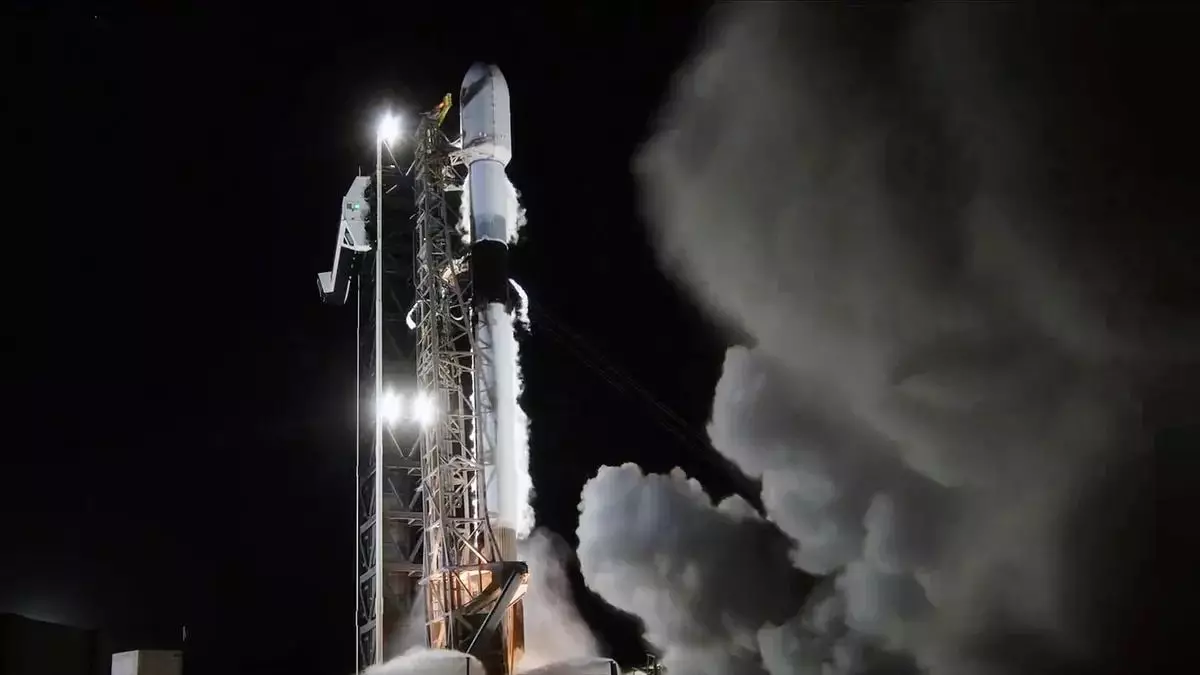On April 21, 2023, SpaceX’s Falcon 9 rocket made a majestic ascent from Cape Canaveral, carrying with it the Euro-innovative reentry capsule, Phoenix 1. This mission, dubbed Bandwagon-3, is a significant milestone in European aerospace, as Phoenix 1 aims to debut an unprecedented feat: returning from space and splashing down just beyond Brazilian shores after a single orbit. According to Atmos Space Cargo, the German firm behind this venture, this occasion marks the first atmospheric reentry attempt by a European private entity. But does this signify a real evolution in space logistics, or is it merely an exaggerated marketing stunt cloaked in scientific ambition?
Setting the Stage for Technological Triumphs
At the heart of this mission lies the inflatable heat shield, a pivotal technology poised to enable safe returns of high-value cargo from space. Atmos Space Cargo proclaims that their intent is a revolutionary metamorphosis in space logistics, propelling advancements across various sectors—including microgravity research and life sciences. This bold claim raises eyebrows. The aerospace industry is notoriously conservative and risk-averse; can a single successful reentry truly spark a renaissance of innovation? It’s a compelling premise, but one that carries substantial risk. Indeed, the fate of future commercial applications rests precariously on this maiden voyage.
Commercial Synergy or Competitive Overdrive?
What’s fascinating yet concerning about this mission is its context within an evolving landscape of commercial space endeavors. Phoenix 1 is not alone; it shares its ride with other significant payloads, such as South Korea’s 425Sat-3 and Tomorrow-S7, a weather satellite. This collaborative approach exemplifies SpaceX’s expanding efforts to make low Earth orbit accessible. However, while the ridesharing model democratizes access to space, it also raises questions about overcrowding and the commodification of space. Are we at risk of reducing the awe-inspiring expanse of the cosmos into a just-in-time delivery service for terrestrial endeavors?
The Broader Implications for European Aerospace
The implications of a successful test flight of Phoenix 1 could be colossal for European companies. Success here could validate the Phoenix program’s technological capabilities and enable scalable research that the continent has historically lagged in, compared to its American counterparts. This perceived leap forward ignites national pride but also paints a precarious picture for Europe’s position in the global space race. While the potential for European autonomy in space logistics is alluring, overambitious projections can lead nations into a chase against time and technology, risking both funding and public interest.
Ultimately, as we stand on the cusp of listening to SpaceX and Atmos Space Cargo’s ambitions, one must ponder: are we truly witnessing a revolutionary step in space logistics, or simply an elaborate charade that sacrifices rigorous scrutiny on the altar of corporate hype? As we gaze towards the stars, it’s vital to remember that behind each mission, there lies a complex interplay of ambition, risk, and the undeniable laws of physics.

Leave a Reply